Unmistakable with his bright red crest contrasting beautifully with a suit of white and grey, this bird stands out all year round!
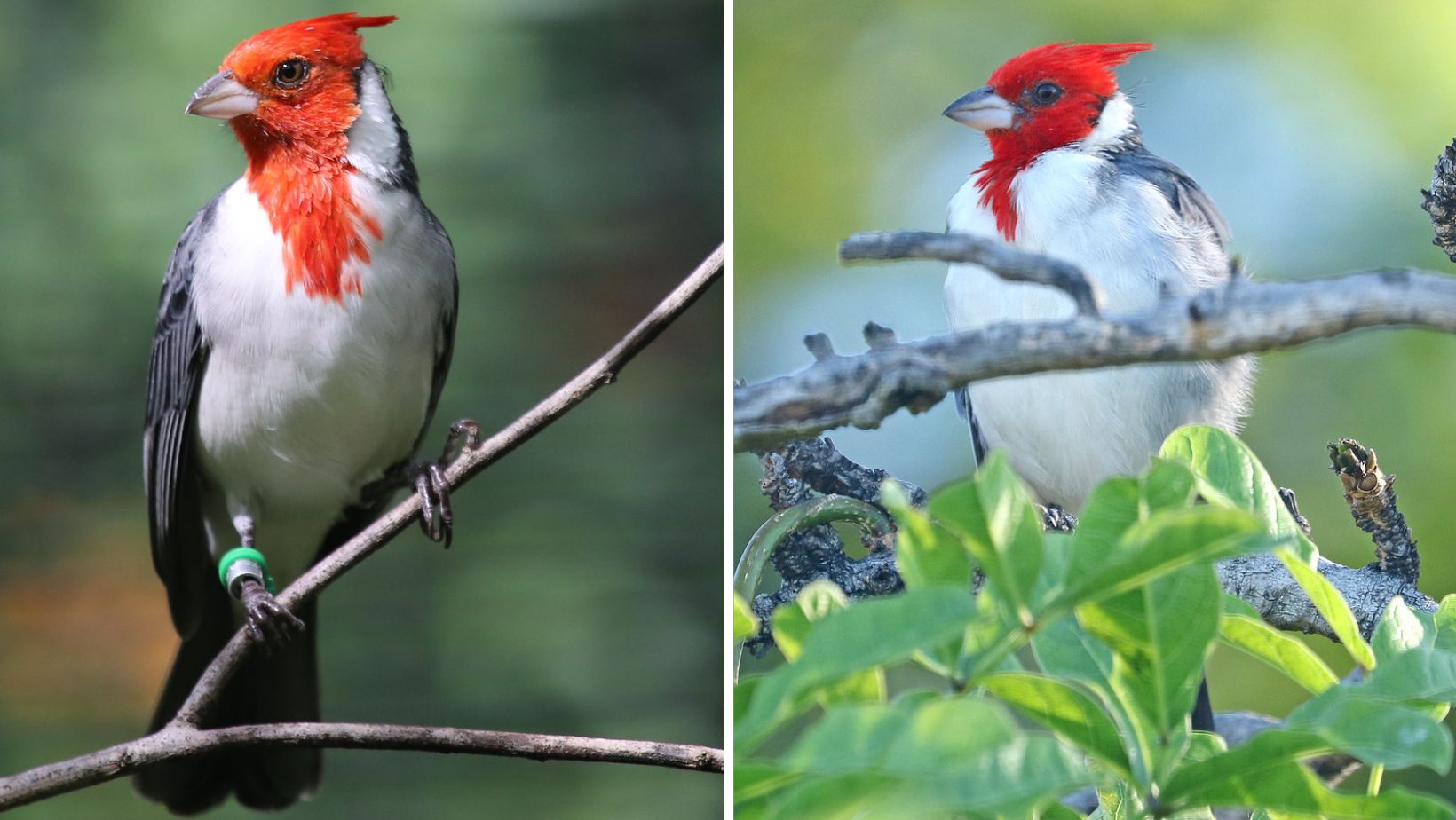
MEET THE RED-CRESTED CARDINAL
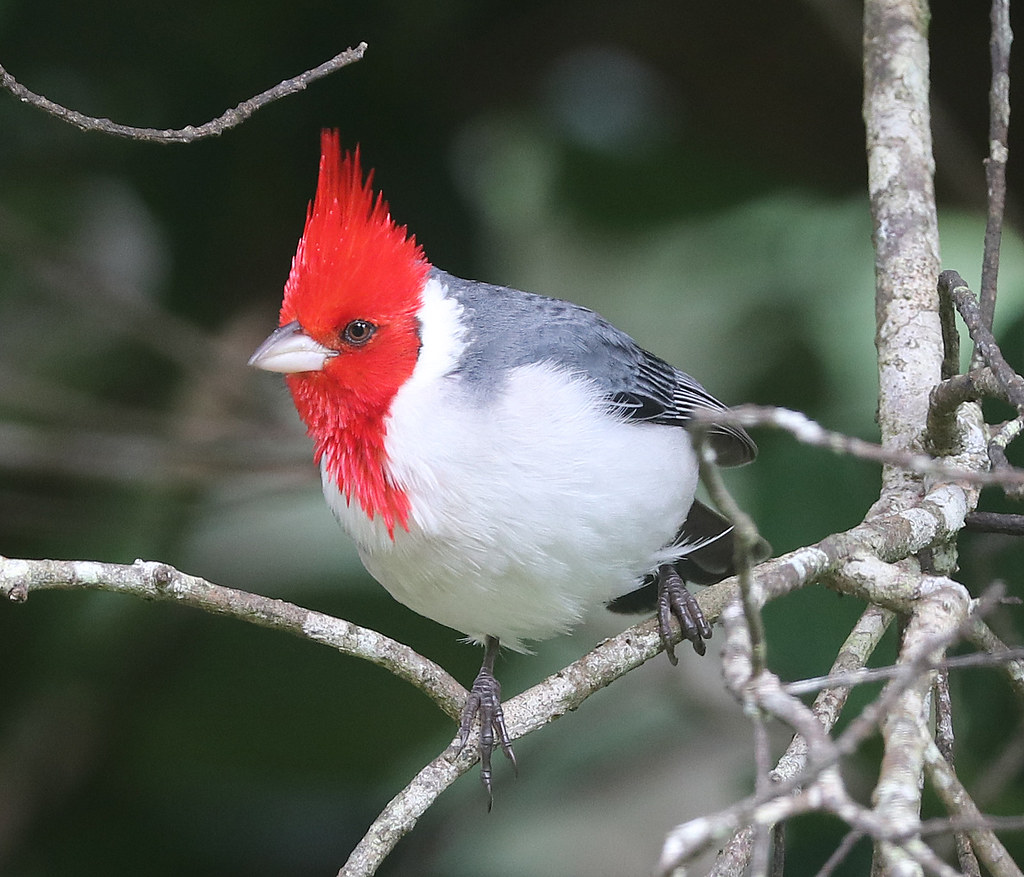
Photo Courtesy of Sloalan /Public Domain
The red-crested cardinal (Paroaria coronata), is a songbird species belonging to the family of tanagers (Thraupidae). A medium-sized bird, they are easily recognized with a redhead, and a red bib along with a short red crest raised at will when they are excited.
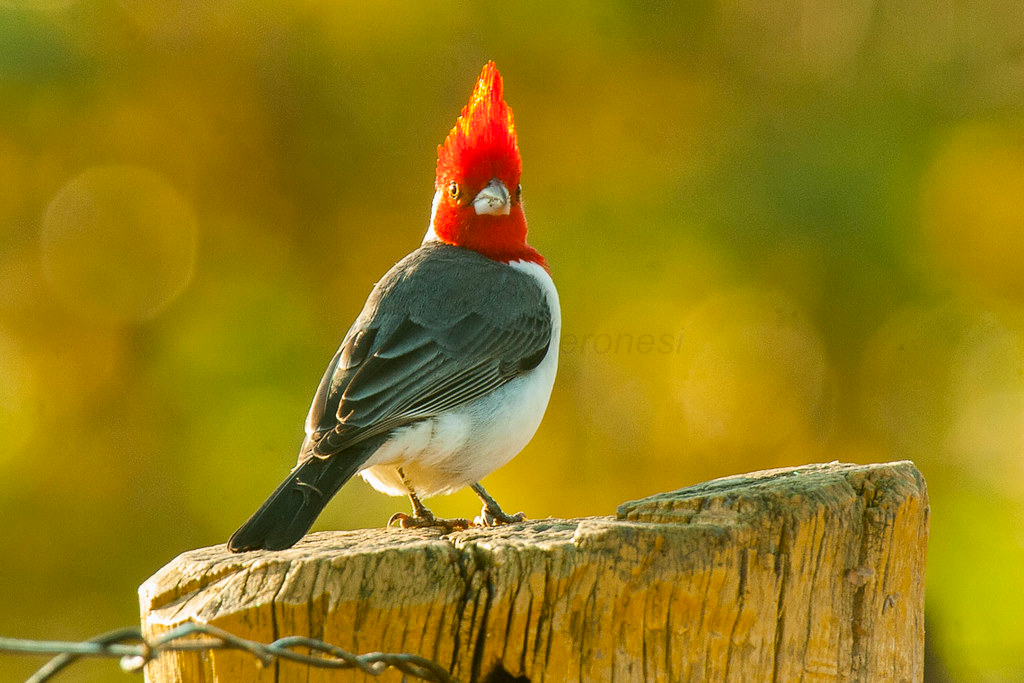
Photo Courtesy of fveronesi1 / CC BY-SA 2.0
The belly breast and under-tail are all white, the back is gray, as are the wings and tail.
Juveniles are similar to adults but tend to show a dull brownish orange had and bib.
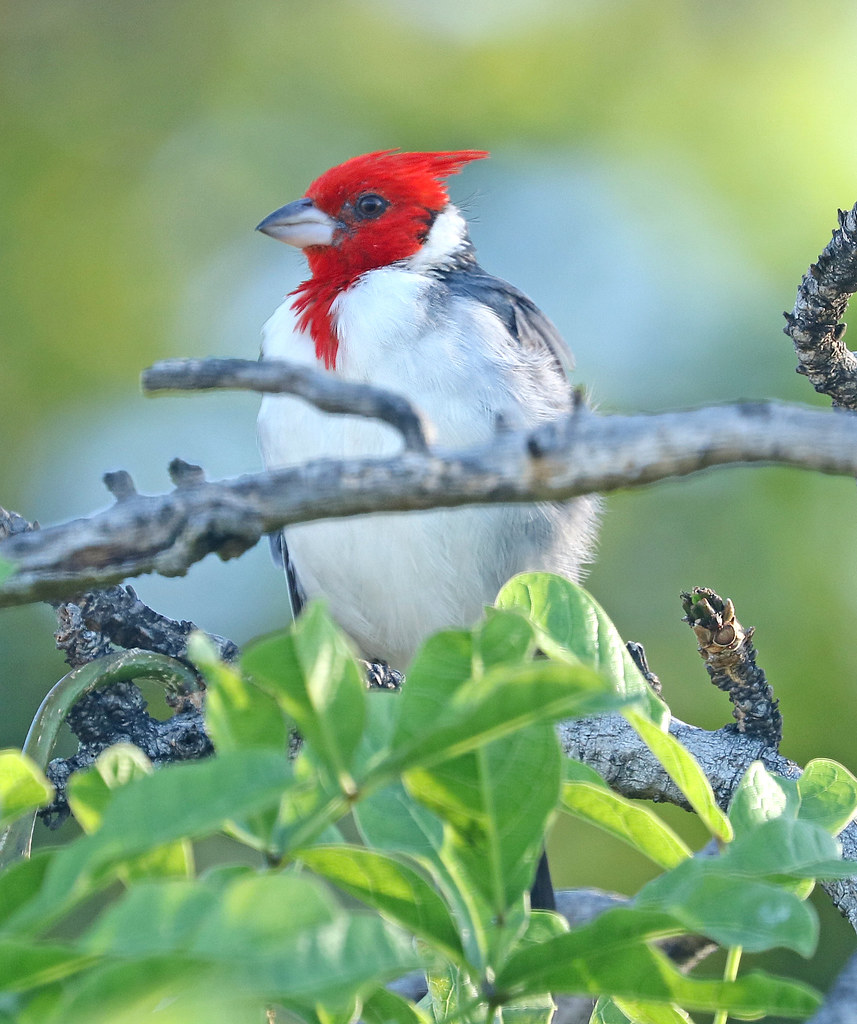
Photo Courtesy of Sloalan /Public Domain
Endemic to South America, the red-crested cardinal can also be found in northern Argentina, Bolivia, southern Brazil, Paraguay, and Uruguay. The species has also been introduced to Hawaii and Puerto Rico and may be found in other areas of Brazil outside its normal original range.
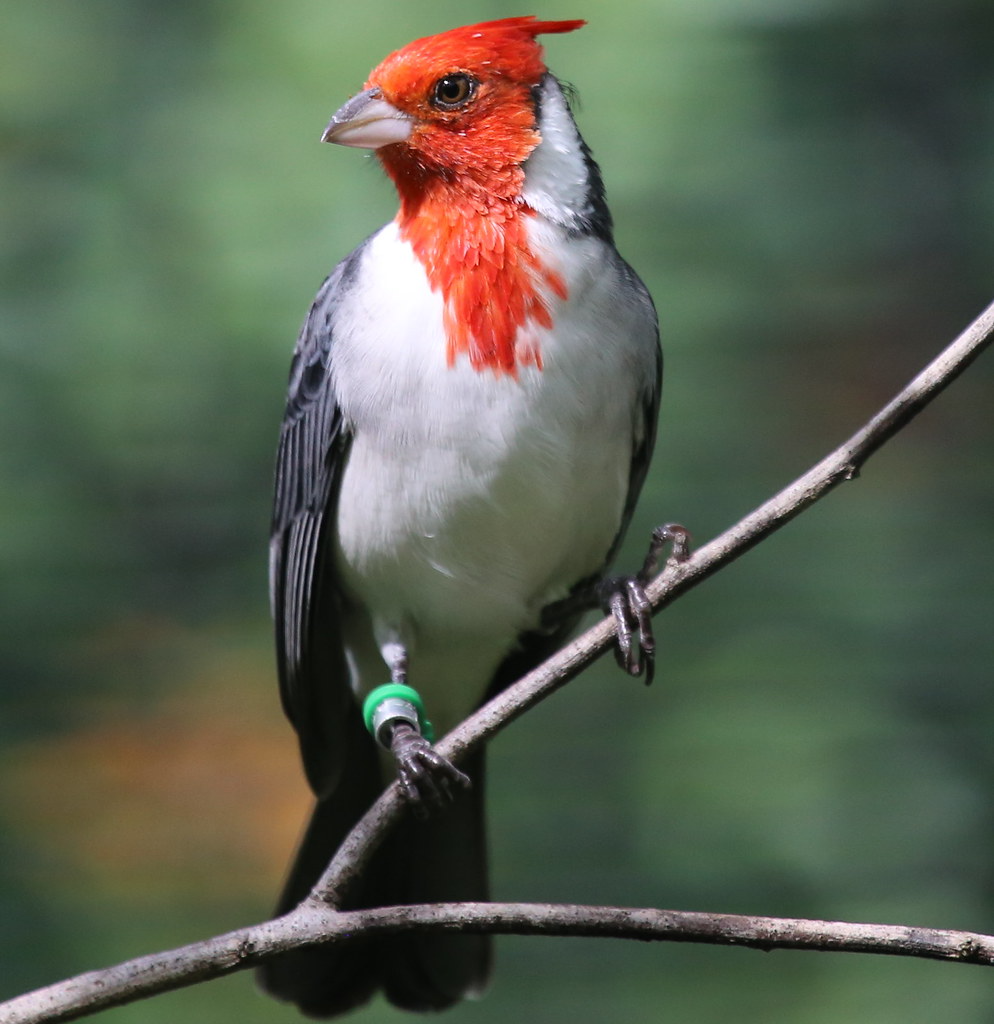
Photo Courtesy of cuatrok77 / CC BY-SA 2.0
Red-crested cardinals love tropical and sub-tropical dry shrub areas, but can also be found in heavily degraded secondary forested areas.
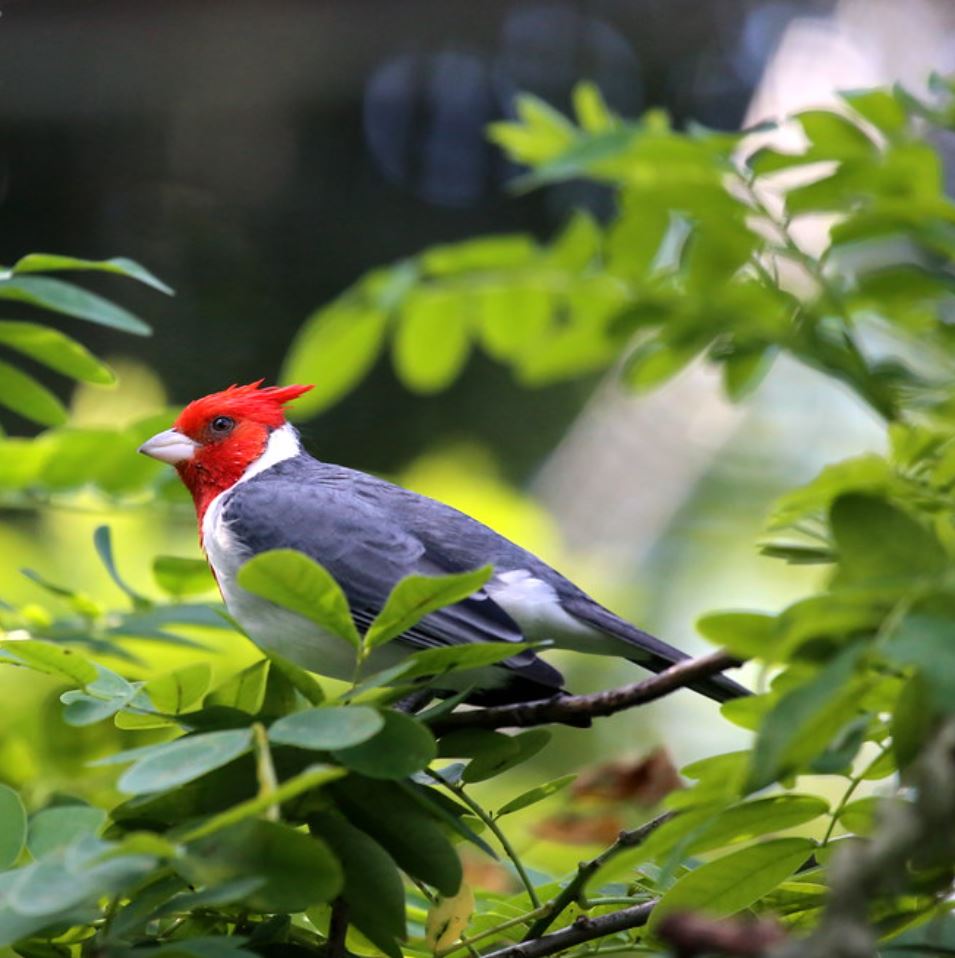
Photo (cropped) Courtesy of cuatrok77 / CC BY-SA 2.0
These birds like to feed on seeds found on the ground, plant matter, insects, and fruit.
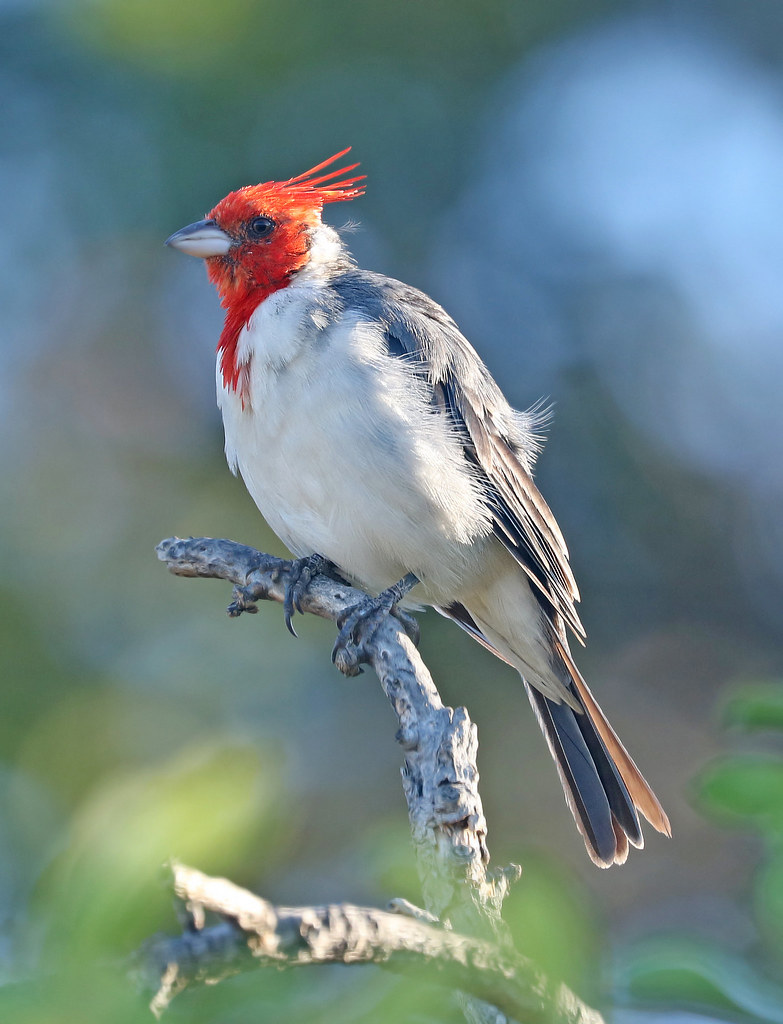
Photo Courtesy of Sloalan /Public Domain
Red-crested cardinal use plant material to weave a cup-shaped nest into bushes and trees. The female then lays 2 to 4 white eggs, mottled and streaked with gray, and or brownish-olive. She then incubates the eggs for 10-12 days until they hatch when they are then fed by both parents. Chicks become fledged after two to three weeks.
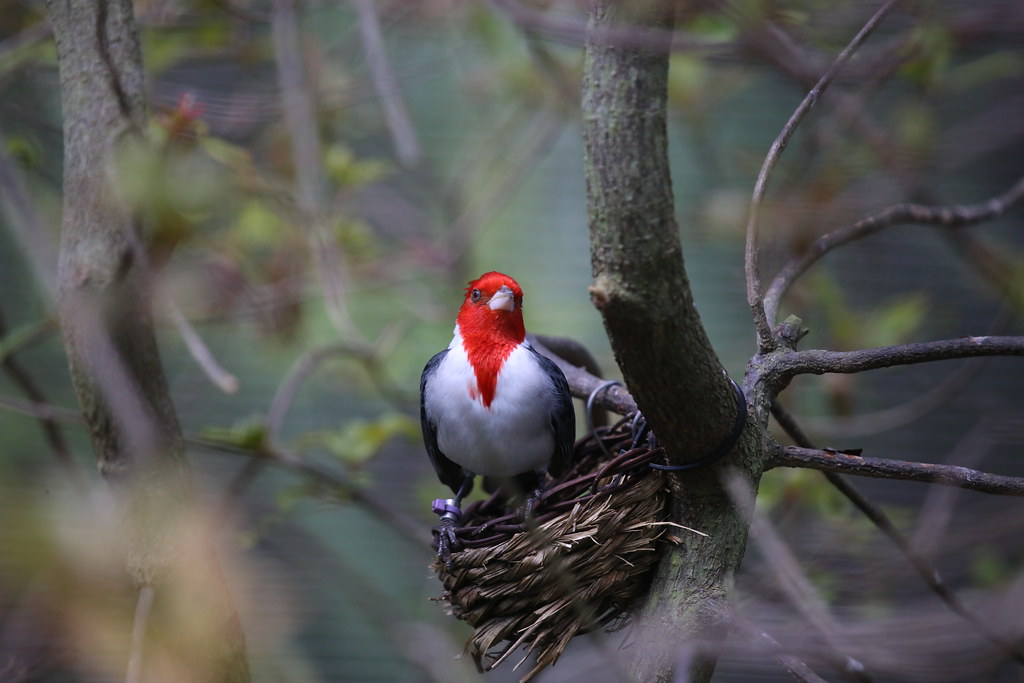
Photo Courtesy of cuatrok77 / CC BY-SA 2.0
Although the species is not threatened at present it does suffer from loss of habitat and illegal hunting for commercial purposes. Many birds are captured every year and sold into the caged bird trade.
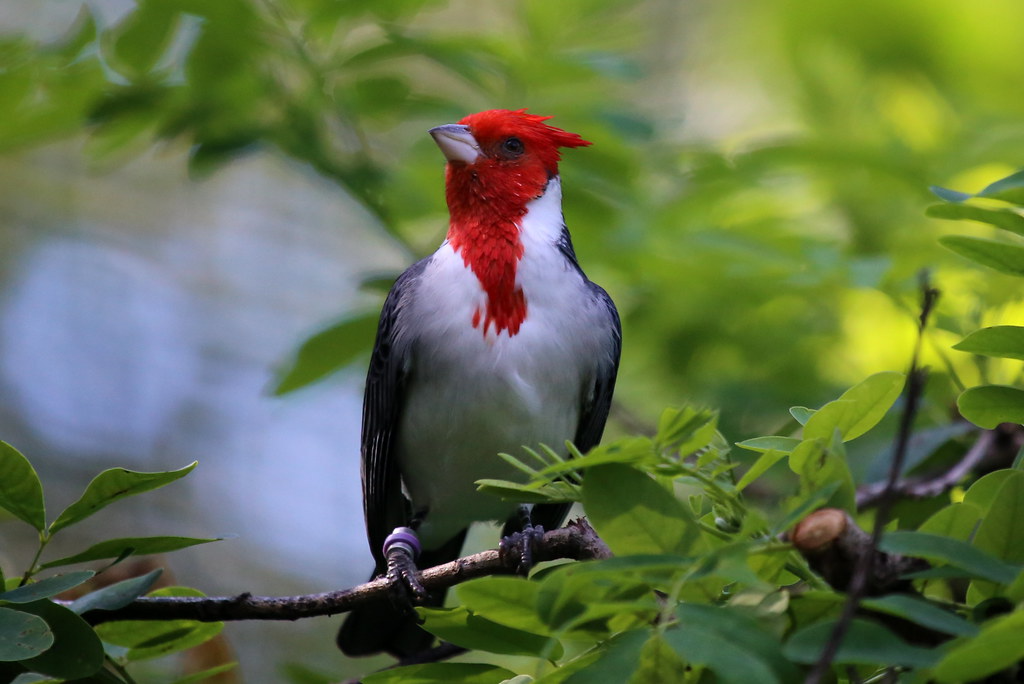
Photo Courtesy of cuatrok77 / CC BY-SA 2.0
WATCH AND LISTEN TO THIS BIRD RIGHT HERE BELOW:

